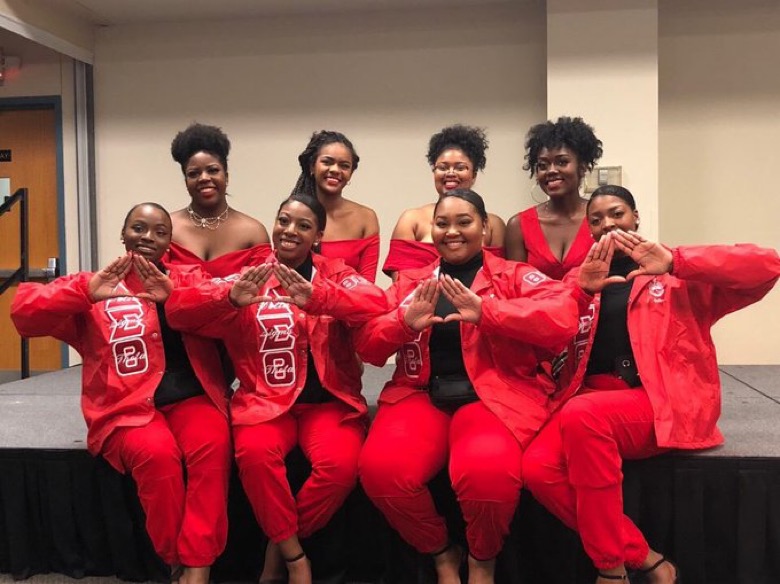Bradley is home to 27 fraternities and sororities and are governed by three councils, Interfraternity Council (IFC), National Pan-Hellenic Council (NPHC), and the Panhellenic Council (PHC). There are over 1,400 members and Greek life represents about 33% of the undergraduate population. While walking around campus, you will see Greek letters everywhere you go. The 14 fraternities and eight sororities under the IFC and PHC are completely different compared to the seven organizations under the NPHC. They all operate under different principles, morals, and missions. One of most obvious differences is race. The IFC and PHC are predominantly white and the NPHC is predominantly black.
The National Pan-Hellenic Council (NPHC) is an organization that caters to nine historically African American Greek lettered fraternities and sororities, also referred to as the Divine Nine.
Currently, there are seven of the nine organizations on the campus of Bradley University. The sororities are Alpha Kappa Alpha, Delta Sigma Theta, Zeta Phi Beta, and Sigma Gamma Rho. The fraternities are Alpha Phi Alpha, Kappa Alpha Psi, and Omega Psi Phi. Black Greek is more than letters and colors. Black Greek is culture. It is history. It is black excellence. The fraternities and sororities are bonded together not just as brothers and sisters, but as a family. A family dedicated to making a change.

Epsilon Eta chapter of Alpha Kappa Alpha Sorority Inc. 
Iota Kappa chapter of Kappa Alpha Psi Fraternity Inc. 
Zeta Phi chapter of Sigma Gamma Rho Sorority Inc. 
Theta Epsilon chapter of Delta Sigma Theta Sorority Inc. 
Phi Delta chapter of Zeta Phi Beta Sorority Inc.
There are no bid days, bigs and littles, or t-shirts for every event that they have. Organizations under the IFC and PHC have a process called “rush” where they have events and/or gatherings that give students who may way to join the opportunity to get to know not only others who want to join but those who are already part of the organization. Organizations under the NPHC do somewhat of the same thing, but a big difference is you don’t get to see what each organization is about. Usually, those who want to join do their research and know exactly who they want to join and why.
As previously stated, black Greek letter organizations (BGLOs) don’t have bid days. They have probates or new member presentations. Probate season, which is usually during spring semester, is one of the biggest times of the year for these organizations and they don’t play around when it comes to presenting their new members. One example being, during the probate for the Zeta Phi Chapter of Sigma Gamma Rho Sorority Inc., vice president of the organization, Krystal Scott, asked all non-Greek members and people who were not part of the new members family to not record the probate.
During these probates, the newest members present the history of their organization, reveal who they are, step and/or stroll, and entertain the audience. History is very important during the probates because they’re acknowledging the men and women that paved the way for them. During the presentation all organizations take shots at one another and for those who are not involved in Greek life may assume that they have problems with one another, but at the end of the day, they’re a family.
For example, during the probate for the Epsilon Eta Chapter of Alpha Kappa Alpha Sorority Inc. (AKA’s), earlier this semester they stated that they’re the first and finest. Some non-Greeks were unaware, but the women of Zeta Phi Beta Sorority Inc. are known for being “finer.” So, during the probate for the Phi Delta Chapter of Zeta Phi Beta Sorority Inc., the new members pointed out that the AKA’s used their word but they’re only going to let them have the first but not the finest.
Lauryn Simms is a student at Bradley and loves seeing how each organization presents their new members. “Probates are special and being a non-Greek, they’re really entertaining to watch, still knowing that they’ve put in work to be a part of a sisterhood or brotherhood.”
“After you get through the probate, that’s when the real work begin”, Raven Moore, a member of the Phi Delta Chapter of Zeta Phi Beta.